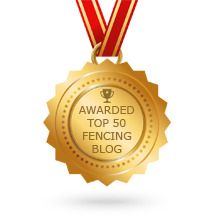
Starting fencing as an adult or even as a senior citizen opens up a world of possibilities, but it also comes with its own set of considerations. While this blog primarily focuses on youth fencing and parenting topics, recent requests from adult and senior fencers have prompted us to delve into their specific needs.
Fencing is not a hobby you can master overnight: it’s a lifelong journey. Unlike some other activities, you can’t become a proficient fencer in a short period of time. While it’s possible to take a short course and discover that fencing isn’t for you (unfortunately, this might happen!), truly enjoying fencing requires a long-term commitment. From developing fundamental techniques to building fencing-specific stamina, understanding tactical elements, learning to compete, and fostering relationships with fellow fencers, coaches, and referees, the journey is rich and multifaceted. It’s about more than just participating in bouts; it’s about immersing yourself in the culture of fencing and embracing it as a significant part of your life. If you invest the time and effort into this journey, you’ll find that fencing can be one of the most rewarding experiences of your life.
Embarking on this lifelong journey in fencing starts with that first step onto the strip. As you delve into the world of fencing, here are some essential tips explicitly tailored for adult and senior fencers to navigate this enriching pursuit.
Find Your Coach: Your coach can make or break your fencing journey. It’s essential to find someone you connect with who understands your goals and can tailor their instruction to suit your needs. Building a strong rapport with your coach is crucial, as this relationship will be a long-lasting one. Remember, coaches aren’t just for youth fencers; many coaches love working with adult and senior fencers, bringing a wealth of experience and knowledge to the table.
Finding the right coach is paramount, and it’s worth taking the time to find someone with whom you connect well. This relationship is a long-lasting one, and it’s essential to establish a good rapport. Particularly in the USA, where fencing often leans towards youth-focused programs, adult and senior fencers bring significant longevity to the sport.
This longevity can be incredibly rewarding for many coaches, as they can enjoy the fruits of their labor for many years. While most coaches see their students move on after graduating from school, working with adult and senior fencers allows coaches to experience the joy of repeated accomplishments in competition, both nationally and internationally. For example, veteran fencers can qualify for the World Team every year. In contrast, cadet fencers typically have only a year or two to vie for a spot on a national team.
Take Private Lessons: Don’t underestimate the power of one-on-one instruction. Private lessons are your ticket to mastering techniques and tactics while avoiding the pitfalls of bad habits. It’s not just about learning the right moves; it’s also about unlearning the wrong ones. As they say, old habits die hard, and with age comes the risk of those habits digging in deeper. So, invest in private lessons to learn the proper technique and prevent those pesky bad habits from taking root. Your future self on the strip will thank you for it!
Take Things Slow: Patience is a virtue, especially in fencing. While youth fencers may be eager to rush ahead, adults and seniors understand the value of pacing themselves. Don’t be in a hurry to master every skill overnight. Allow yourself the time to learn and progress at your own pace without feeling rushed or pressured. Fencing is a complex sport that requires time and dedication to master, so focus on gradual improvement rather than immediate results. Enjoy the journey, celebrate small victories, and trust that progress will come with time and dedication.
Prioritize Warm-Up and Exercises: As we age, our bodies require more care and attention. Proper warm-up and exercise routines and cool-down exercises after practice become even more critical to preventing injuries and maintaining flexibility. Take the time to develop a warm-up routine that works for you, incorporating stretches and exercises that target areas prone to stiffness or strain. Your coach plays a crucial role here! They understand your body’s specific needs and limitations, making them an essential guide to working out correctly. Don’t rely solely on generalists in gyms for your warm-up, as they may not be familiar with the specific movements and asymmetrical use of the body involved in fencing, such as lunges, fleches, and thrusts. Instead, trust your coach to provide tailored guidance in these matters. Remember, an ounce of prevention is worth a pound of cure!
Learn Your Limits: It’s essential to listen to your body and know when to push yourself and when to dial it back. While the competitive spirit may drive you to fence one more bout or push through fatigue, it’s essential to recognize your limits and respect them. Overexertion can lead to injury, setbacks, and burnout, so err on the side of caution and prioritize your well-being. Listen to your body and take breaks when needed to ensure you can enjoy fencing for years to come.
Manage Injuries: Injuries are a part of any athletic endeavor, but how you handle them can make all the difference. Don’t ignore nagging pains or discomfort; seek professional advice and treatment promptly. If you do get injured, prioritize proper care and rehabilitation to avoid exacerbating the injury. Physical therapy, chiropractic care, and rehabilitation exercises can help expedite healing and prevent chronic issues from developing. Consult with medical professionals and follow their recommendations for recovery to ensure you can return to fencing safely and effectively. Remember, your long-term health is worth the investment in proper care and recovery.
Embrace the Youthful Energy: Fencing clubs typically comprise a significant majority of young, school-age fencers, which naturally leads to veterans finding themselves surrounded by youth. Surrounding yourself with young fencers can be invigorating and inspiring. They’ll push you, demonstrating what’s possible and showcasing their rapid skill development. However, it’s essential to recognize that you can’t chase them in skill development. What they can learn in a day might require a week for you.
But don’t be discouraged—this is akin to when you learned new skills faster than your parents when you were young. What you bring to the table is wisdom. Approach new skill development not only from a mechanical perspective but also from an analytical one—understand the ‘why’ behind each move or technique. Often, grasping the ‘why’ can accelerate your learning of the ‘how,’ which is sometimes what youth lacks.
Additionally, as seasoned fencers, adults and seniors play a vital role in mentoring younger fencers, passing down wisdom and experience gained from years of dedication to the sport. This mentoring dynamic enriches the fencing community, fostering a culture of learning and growth for fencers of all ages.
Invest in Quality Gear: Treat yourself to quality fencing gear that will serve you well for years to come. While you may not need all the bells and whistles of FIE-approved equipment just yet, investing in a good quality uniform, reliable mask, and fencing-appropriate shoes is essential. Quality fencing gear is an investment that will serve you well in the long run, so don’t go for the cheapest one. Additionally, take the time to learn how to care for and maintain your equipment properly, as it is essential for its safety and longevity.
As an adult or senior fencer, your fencing journey may take you to multiple clubs and competitions over the years. Unlike younger fencers who primarily stick to their home club, adults tend to explore different fencing environments. Additionally, while kids might have separate bags for club practices and travel, adults mostly need one spacious bag to carry all their gear. This is where a good rolling bag becomes indispensable. Opting for a durable roller bag that can accommodate all your fencing equipment (and some more) is a wise investment. It ensures convenience and efficiency as you navigate your fencing journey, providing ample space to store your gear and withstand the wear and tear of frequent use.
Embrace an Athlete’s Mindset: While it may feel unfamiliar at first, transitioning to seeing yourself as a fencer naturally leads to adopting an athlete’s mindset – yes, even when you qualify for a senior citizen discount! Viewing yourself through this lens highlights the importance of your overall lifestyle, particularly your diet, which becomes even more critical with age. As an athlete, your diet directly impacts your performance and longevity in the sport. Take this opportunity to reassess your eating habits, hydration levels, and general lifestyle choices. A well-balanced diet abundant in essential nutrients and with a reduced intake of less healthy ingredients, coupled with regular exercise and sufficient rest, will not only enhance your performance but also ensure you feel strong, energized, and prepared for the challenges of the strip.
Consider Competing: Competing isn’t just for the young – it’s an opportunity for fencers of all ages to test their skills, set goals, and measure their progress. Of course, you don’t need to start competing right away, but it’s something that should be on your radar. Start locally with veteran competitions, gradually working your way up to regional and national events. Competing provides a sense of purpose, camaraderie, and personal growth that enriches your fencing journey.
Engage with the Veteran Fencing Community: Participate in veteran-specific events and clinics to connect with fellow fencers and build lasting friendships. The veteran fencing community is welcoming and supportive, offering a wealth of knowledge and camaraderie for fencers of all ages. Whether online or in-person, fencing communities offer invaluable support, camaraderie, and friendship. When you are an adult or senior, establishing strong life-long friendships is more complicated than when you were young. But not so when you join these fencing communities and connect with fellow fencers who share your passion for the sport. The friendships forged in the fencing community are as enduring as they are enriching.
Become a Fencing Advocate: Share your love of fencing with others and help grow the sport in your community. By introducing friends and family to the sport, volunteering at local clubs or events, advocating for fencing in your area, bringing your colleagues from work to fencing events, or organizing team buildings for them in your club, you not only spread the joy of fencing but also contribute to its vitality and accessibility.
Engaging with others in the fencing community fosters camaraderie, mentorship, and a supportive network that can enhance your own fencing journey. Your enthusiasm and dedication inspire fencers of all ages and abilities, fostering inclusivity, diversity, and a sense of community within the sport while enriching your experience.
Remember, fencing is not just a sport. It’s a lifelong journey that can be started at any age and is filled with opportunities for growth, camaraderie, and personal fulfillment. So whether you’re picking up a weapon for the first time in your forties or embracing it in your seventies, know that the fencing community welcomes you with open arms.
Photo by: Serge Timacheff




Lessons are important throughout your career as rules, equipment and reffing evolves.